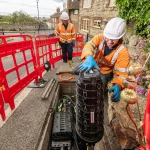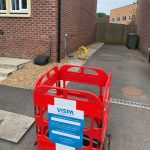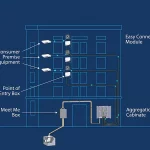Newcastle, North Tyneside and Northumberland Bid for Gigabit Fibre
The North of Tyne Combined Authority has announced that it will bid for £12m of public funding from Wave 3 of the UK Government’s Local Full Fibre Networks (LFFN) fund, which could be used to extend “ultrafast broadband” (e.g. FTTP) ISP networks to connect “tens of thousands of local homes and businesses.”
The project, which could be worth £24 million (i.e. 50% Government-funded and 50% match-funded from member councils’ existing network running costs), would if successful in its bid (£100k has been set aside to develop this) aim to install ultrafast fibre optic cabling to 900 public buildings across the area by 2024. After that it could potentially be extended to cater for local businesses, 5G mobile networks and residents.
The bid is said to align with the combined authority’s Network of Connections priority to build better-connected and more inclusive communities, which is one of six “pillars of ambition” outlined in the local Home of Ambition economic vision document.
Advertisement
Norma Redfearn CBE, North Tyneside’s Elected Mayor, said:
“One of our six key priorities as a combined authority is to develop a powerful network of connections, with faster digital infrastructure to create stronger links across the North and internationally.
We already have one of the fastest-growing digital sectors in the country and this funding, if we are successful, will enable us to continue to build from a position of strength and make sure our businesses have the digital infrastructure they need to be competitive on a global scale now and in the future.
It will help us build better-connected communities and boost economic productivity across the region. We will continue to speak to residents and the business community as this exciting programme takes shape.”
According to the combined authority, further fibre roll-out across the area will complement and enhance large-scale private sector investment in international connectivity – ensuring that economic benefit can be generated in the region – notably by Aquacomms, who are investing in linking Newcastle and the Stellium Data Centres in North Tyneside to Denmark, Ireland and North America.
However Wave 3 of the LFFN programme only has £95m in its pot and there are a number of other bidders, which means that not all may be successful or get exactly what they want. The final decision on funding will be made by the LFFN Investment Panel (LFFNIP), who will assess the proposals and place particular importance on a number of areas, including:
Rural focus: Projects demonstrating the effectiveness of Local Full Fibre Networks delivery in rural locations and hard-to-reach areas
5G or Barrier Busting: Projects focused on overcoming obstacles to the commercial roll-out of fibre and 5G
Public Sector Productivity: Projects targeting improvements to public sector services, such as enabling schools to access new cloud based educational tools, or allowing medical professionals to remotely monitor patient health
Market Development: Projects deliberately targeting the development of the full-fibre market in a particular area, including incentivising aggregation
The move away from a “competition selection process” with fixed submission dates and adoption of a more “iterative approach” should allow the government (DCMS) and local bodies to identify and develop projects collaboratively in order to “avoid unnecessary abortive work“.
Mark is a professional technology writer, IT consultant and computer engineer from Dorset (England), he also founded ISPreview in 1999 and enjoys analysing the latest telecoms and broadband developments. Find me on X (Twitter), Mastodon, Facebook, BlueSky, Threads.net and Linkedin.
« Cityfibre Win Contract to Build Gigabit Fibre Network in Suffolk UK

















































Comments are closed